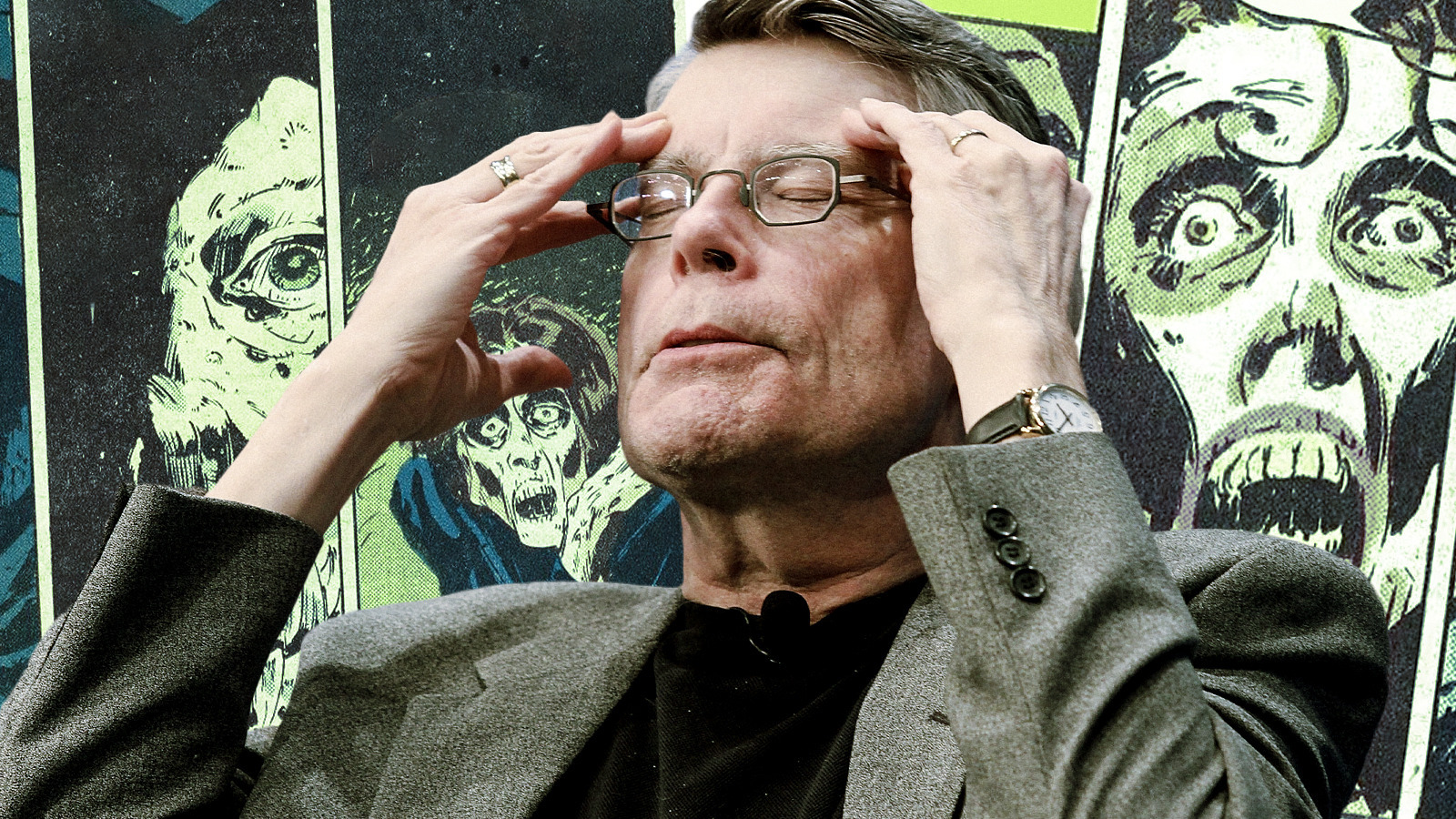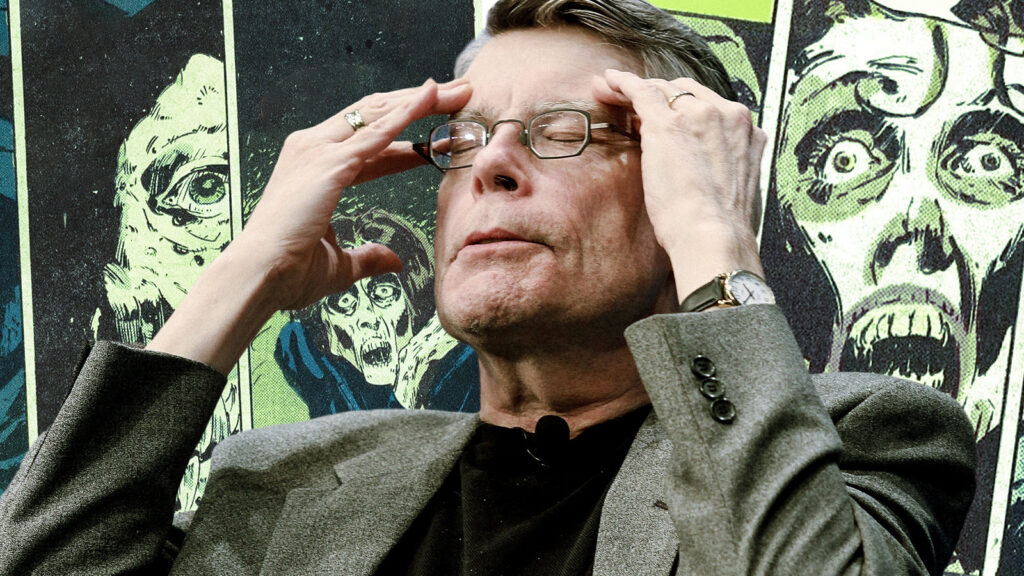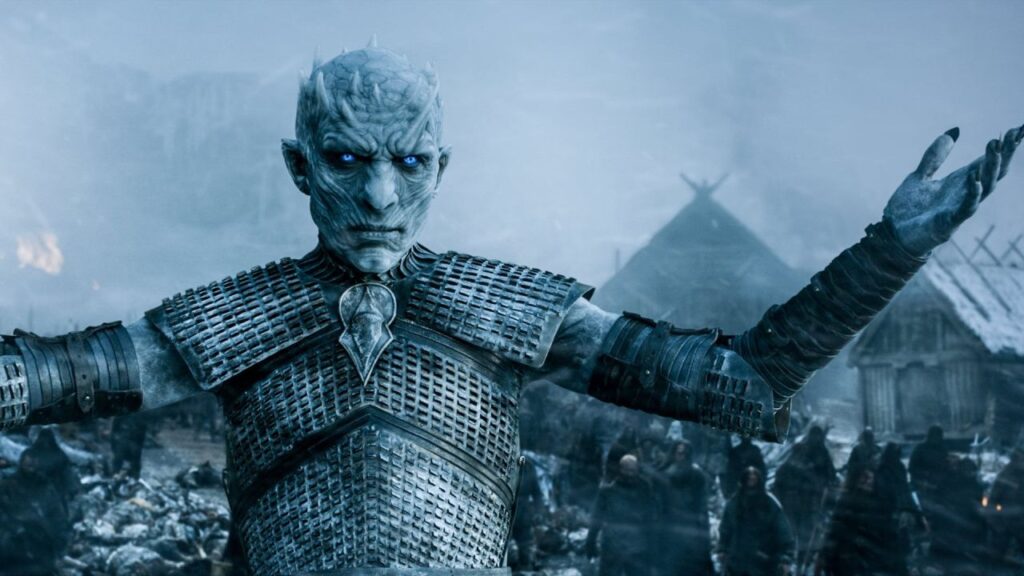
Stephen King is not just a prolific writer, he’s a ravenous reader. Those two qualities mean that he has a strong sense for, among other storytelling talents, what makes a great antagonist. (King’s favorite villains include Count Dracula and Anton Chigurh.)
King’s own books have plenty of memorable bad guys: Pennywise, Randall Flagg, Greg Stillson, Cujo, etc. One of his more obscure villains resides not in the “Kingverse,” though, but the Marvel Comics universe.
Stephen King doesn’t watch or like Marvel Studios movies, but he’s been a comic book fan for a long time. Some of King’s earliest stories, he’s said, were ones he copied out of the comics he was reading as a kid. The love has endured since he became a professional writer. King’s novel “Firestarter” feels like the superhero and horror genres converging, while “The Dark Tower” series features werewolves dressed like Doctor Doom (“the Wolves of the Calla”).
His son Joe Hill (also a writer, whose work includes “The Black Phone”) has likewise written several comics (most famously “Locke & Key”) and oversees the “Hill House” horror comic imprint at DC.
In 1985, Marvel published the super-sized issue “Heroes for Hope: Starring the X-Men,” with proceeds from sales being donated to African famine relief efforts. The book has dozens of credited contributors, including both regular comic writers (Stan Lee, Chris Claremont, Louise Simonson) and prose writers (Harlan Ellison, vocal Marvel fan George R. R. Martin, and yes, Stephen King).
King’s addition to the issue can be seen in how he makes the X-Men face a villain right out of his novel, “Thinner.”
The Hungry is a Marvel Comics villain right out of a Stephen King book
“Heroes for Hope” was a “comic jam,” or an issue that tells a single story with pages crafted by different writers and artists. The premise of the book (a psychic entity attacks the X-Men one-by-one) lends itself to this unconventional writing style.
Alan Moore wrote pages 16-18 (drawn by Richard Corben), where the entity attacks Magneto. In an apocalyptic world where he won his anti-human crusade, Magneto is surrounded by the corpses of his victims. Looking into his old helmet as his own horrified gaze glares back, Magneto declares: “The hands of the dead are upon me, and I do not even have the right to scream.”
The only pages in “Heroes for Hope” nearly as scary as Moore and Corben’s are the ones written by King (pages 10-12). When the entity attacks Kitty Pryde, it appears as a black-cloaked figure that causes Kitty to feel painfully hungry. The figure holds out a hot dinner plate that rots once Kitty grabs it, while her own body rapidly decays to just skin hanging on her bones. The Entity boasts, “I’m pestilence and desolation, Kitty, but my friends just call me hungry!”
King’s pages in “Heroes for Hope” were drawn by Bernie Wrightson, a horror comic master. (He co-created Swamp Thing and drew a gorgeously illustrated version of “Frankenstein.”) The pages before King and Wrightson were drawn by members of the usual X-Men artist stable: John Romita Jr., John Byrne, John Buscema, and Brent Anderson. Wrightson’s art shifts away from the “X-Men” house style to something more detailed and horrific, just as the story itself makes such a turn.
“Thinner” is about Billy Halleck, an overweight man cursed to waste away (no matter how much he eats) after he accidentally kills a Romani woman. The book was published in 1984, under King’s pen name Richard Bachman; it seems the idea of “Thinner” was still on his mind the following year when he created Hungry in “Heroes for Hope.”
Due in part to its poor movie adaptation, “Thinner” is not often ranked as one of King’s best works. Still, those three terrifying pages that he and Wrightson crafted in “Heroes for Hope” prove the conceit of “Thinner” can still be scary in a visual medium.


